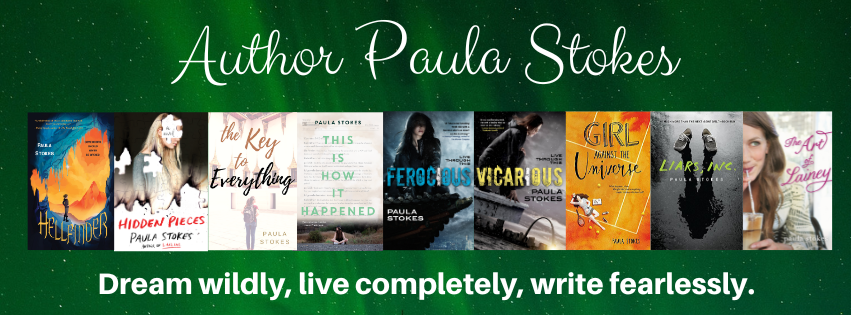Are you reading THIS IS HOW IT HAPPENED for a book club or online read-along? Here are some things you might want to think about:
1. The book starts with a news article from a fictional website. After reading that article and the comments below, who do you think was responsible for the accident? Give reasons for why you feel the way that you do.
2. In the first flashback, Genevieve remembers going to Dallas’s album release party where she tells readers she feels out of place. Have you ever felt out of place at a party? What factors determine whether or not you feel comfortable in a particular social setting?
3. When Genevieve returns to school, she is visibly bothered by the outpouring of grief some of her classmates are showing toward Dallas’s death. Why do you think this is?
4. Genevieve says she can’t bring herself to hate Brad Freeman, the man who allegedly caused the accident. Why might this be the case? How would you feel in her situation?
5. At the end of Chapter 10, Genevieve wonders for the first time if the accident might have been her fault. What makes her feel this way? What does her mom tell her in Chapter 11 when she shares her concerns? Do you agree with her mom?
6. The Article in Chapter 13, entitled “Was Dallas Kade About to be a Father?” is what people these days are calling fake news. Give three reasons why someone reading that article should be suspicious of the information presented.
7. When Genevieve starts volunteering at Zion National Park, she has no experience with trail building. She quickly realizes that vigorous physical labor calms her and keeps her anxiety from spiraling out of control about the accident and the information being spread on the internet. Later, when she’s practicing the American Ninja Warrior obstacles with Elliott, she also finds that focusing on exercise takes her mind off her troubles. When you are feeling anxious, angry, or afraid, what are your go-to activities that help you stay calm?
8. The articles in Chapter 17 illustrate media bias. I differentiate media bias from fake news in that fake news is sometimes completely fabricated information, but media bias takes factually true statements and distorts them or presents them through a certain lens to advance an agenda. Compare and contrast the headlines, the text of the articles, and the facts presented. How many examples of media bias can you find? Which article feels more credible to you? Why?
9. The flashback in Chapter 18 includes multiple examples of unsafe driving. How many can you name?
10. Even though she hates lying, it takes Genevieve a long time to tell the truth about the accident because she’s terrified of the possible consequences. Name at least three specific things she’s afraid might happen.
11. How do the friendships and relationships Genevieve develops with her dad, stepmom, Halley, and Elliott help her cope with her grief and guilt throughout the novel?
12. What happens that finally makes Genevieve realize she can’t keep hiding the truth? Why do you think this affects her the way that it does?
13. Throughout the novel, Genevieve is tormented by hashtags in her head, imaginary labels she applies to herself. Has anyone ever “labeled you” in a way that hurt you? Have you ever labeled yourself like Gen does? Why do you think people do this sometimes?
14. When you respond to a post or tweet on the internet written by or about a stranger, do you ever think about the network of people who might be affected—directly or indirectly—by your response? Do you ever stop to consider the mental health of the poster prior to posting, and how their mental health might be adversely affected by being “dragged” by the public?
15. Do you think the internet culture of blaming, shaming, owning, calling out, etc. might be making it harder for people who want to tell the truth to come forward when they do something wrong, due to fear of excessive retribution? Why or why not?
**Bonus: There are five bit.ly links incorporated into the tweets and blog post comments. If readers input them into their phones or computers, they'll discover fun extra material :)
**Double Bonus: Are you looking for more YA books that tackle tough topics? Check out this video wiki!
